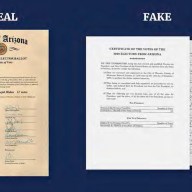One of the youngest Michelin-starred chefs from Austria, chef Eduard Frauneder began his culinary career at a young age. In his preteens, he worked alongside his father in the multiple bakeries and pastry shops the family owned in Vienna.
Fast forward years later, Frauneder’s passion for food hasn’t waned and he’s managed to bring his home flavors to Alphabet City of all places.
Along with business partner Wolfgang Ban, they opened their second NYC restaurant Edi & the Wolf. The result is a rustic yet sophisticated Austrian bistro. We chatted with the chef about Austrian flavors, grapes and Oktoberfest.
How do New Yorkers react to Austrian food?
People tend to think of heavy food — meat and potatoes — but we believe we can serve more refined food that’s light and elegant in execution, like schnitzel with heritage pork or grass-fed veal. People are surprised to find we even offer light fare, including vegetarian.
Ultimately, we want to move away from the Germanic stereotype of heavy food. Farm to table is the standard on Europe; it’s just here that people have become detached from this ethos. In Austria, farm to table is just a way of life and it’s the way we all grew up eating.
You had a hand in the impressive wine list. What was your selection process like?
Austria has been growing wine for over 2,000 years. The wine list is Austrian, but more precisely, Viennese. There’s everything from a nice crisp grüner veltliner and gelber muskateller to morillon and a beautiful blaufränkisch. People might not be as familiar with these wines but they present a great value.
The space at Edi & the Wolf is sexy, disheveled and fun.
The aesthetic reflects a wine tavern like the kind I grew up frequenting: a warm, inviting atmosphere such as communal tables and a backyard garden.
You’re here in the hot chef section. Do you think you have any fans coming for more than just your excellent schnitzel?
You know how Vienna works: everybody’s equal, but some are more equal than others.
What does Oktoberfest mean to you, personally?
It signifies the end of harvest; the history is that all classes come together. For me, it means a couple of things.
It’s the end of harvest so, as a chef, it’s such an exciting time to be in the kitchen and work with ingredients like wild mushroom, truffles, leafy greens like Swiss chard, and spinach.
It’s also a great time for everyone to come together and celebrate the best brews of the season. The German word for it is gemütlichkeit.
















